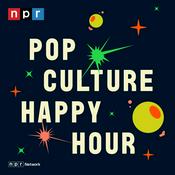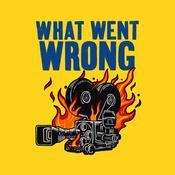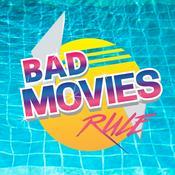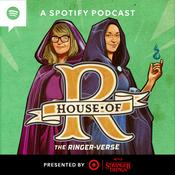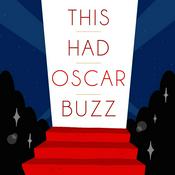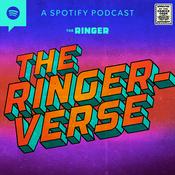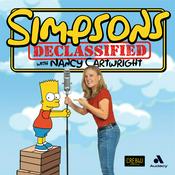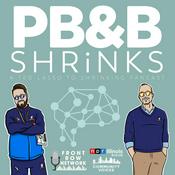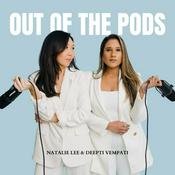529 episodes
- It's late January, and the intrepid Film Comment crew is on the ground reporting from an extra special edition of the Sundance Film Festival—the last to take place on the snowy slopes of Park City, Utah, the festival's home since 1981, before moving to Boulder, Colorado in 2027. For the next week, we’ll be gathering the best critics on the scene to talk about each day’s premieres on the Podcast.
For our third Podcast from the fest, Film Comment Editor Devika Girish invited critics and FC Podcast veterans Tim Grierson, Robert Daniels, and Monica Castillo to discuss some of this year’s buzziest premieres to date, including Cathy Yan’s art world–satire The Gallerist (3:00), Gregg Araki’s erotic romp I Want Your Sex (20:15), and Olivia Wilde’s couples' night dramedy The Invite (31:45, 42:40).
Catch up on all of our Sundance 2026 coverage at filmcomment.com - It's late January, and the intrepid Film Comment crew is on the ground reporting from an extra special edition of the Sundance Film Festival—the last to take place on the snowy slopes of Park City, Utah, the festival's home since 1981, before moving to Boulder, Colorado in 2027. For the next week, we’ll be gathering the best critics on the scene to talk about each day’s premieres on the Podcast.
For our second Podcast from the fest, Film Comment Editor Devika Girish sat down with programmer Madeline Whittle (Film at Lincoln Center) and critic Will Tavlin (n+1) to discuss Adam and Zack Khalil's Aanikoobijigan [ancestor/great-grandparent/great-grandchild] (1:54), John Wilson’s The History of Concrete (14:05), and Gabriela Osio Vanden and Jack Weisman's Nuisance Bear (28:11).
Catch up on all of our Sundance 2026 coverage at filmcomment.com - It's late January, and the intrepid Film Comment crew is on the ground reporting from an extra special edition of the Sundance Film Festival—the last to take place on the snowy slopes of Park City, Utah, the festival's home since 1981, before moving to Boulder, Colorado in 2027. For the next week, we’ll be gathering the best critics on the scene to talk about each day’s premieres on the Podcast.
To kick things off, Film Comment Editor Devika Girish invited programmer Madeline Whittle (Film at Lincoln Center) as well as critics Robert Daniels (RogerEbert.com) and Will Tavlin (n+1) to share their responses to the films premiering during the first few days of the fest. The group discusses the tongue-in-cheek Charli XCX mockumentary The Moment (3:30), Casper Kelly's dark comedy Buddy (20:15), and Beth de Araujo’s sophomore feature Josephine (29:50).
Stay tuned for more of our Sundance 2026 coverage. - Every January, as we ring in the new year, we take a moment to take a look at some of the major new releases of the holiday season. This year, Film Comment Editors Devika Girish and Clinton Krute invited critics Beatrice Loayza and Mark Asch to focus on a select handful of titles that have recently graced the marquees of multiplexes, and which continue to stir up discourse. The group kicks things off with a deep dive into James Cameron’s latest 3D space opera, Avatar: Fire and Ash (4:00), before turning their attention to another epic, Josh Safdie’s Marty Supreme (33:34)—which both Beatrice and Mark have written great essays on in recent weeks. They also touch on James L. Brooks’s Ella McCay (51:15), which Mark reviewed for Film Comment just last week.
- On December 11, 2025, as part our annual winter list extravaganza, Film Comment Editors Devika Girish and Clinton Krute were joined by esteemed critics Amy Taubin and Bilge Ebiri for a real-time countdown of the films topping our year-end critics’ poll. The evening featured a lively discussion (and some hearty debate) about the films as they were unveiled—and now it’s available in Podcast form, for your home-listening pleasure. Consider it a holiday gift from us to you, our loyal listeners.
Read the full list, plus best undistributed films, individual ballots, and more, here: https://www.filmcomment.com/best-films-of-2025/
More TV & Film podcasts
Trending TV & Film podcasts
About The Film Comment Podcast
Founded in 1962, Film Comment has been the home of independent film journalism for over 50 years, publishing in-depth interviews, critical analysis, and feature coverage of mainstream, art-house, and avant-garde filmmaking from around the world. The Film Comment Podcast, hosted by editors Devika Girish and Clinton Krute, is a weekly space for critical conversation about film, with a look at topical issues, new releases, and the big picture. Film Comment is a nonprofit publication that relies on the support of readers. Support film culture. Support Film Comment.
Podcast websiteListen to The Film Comment Podcast, No Filter With Zack Peter and many other podcasts from around the world with the radio.net app

Get the free radio.net app
- Stations and podcasts to bookmark
- Stream via Wi-Fi or Bluetooth
- Supports Carplay & Android Auto
- Many other app features
Get the free radio.net app
- Stations and podcasts to bookmark
- Stream via Wi-Fi or Bluetooth
- Supports Carplay & Android Auto
- Many other app features


The Film Comment Podcast
Scan code,
download the app,
start listening.
download the app,
start listening.




